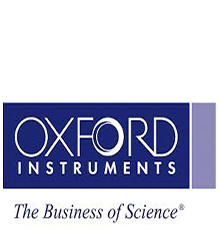April 27, 2016 (Santa Barbara, CA) McGill University Department of Physics and Oxford Instruments Asylum Research are pleased to announce the McGill AFM Summer School and Workshop, May 12-13, 2016. The Workshop focuses on nanoelectrical and nanomechanical characterization using atomic force microscopy (AFM) techniques. The agenda includes lectures by leading AFM researchers, equipment demonstrations, a poster session, and an information-rich question and answer period. Ideal for those with some AFM experience, attendees will ultimately come away with a better understanding of the “how-to’s” and “whys” of these techniques so they may incorporate them into their own research.
“We are excited to be partnering with Asylum Research for further educating our local AFM community on nano-mechanical and electrical characterization,” said Dr. Peter Grütter, Physics Dept. Chair. “Asylum has been at the forefront of AFM innovation and has unceasingly supported education for AFM users. This is a great opportunity for our invited speakers and Asylum experts to share their extensive knowledge of these techniques so our users can hone their AFM skills and better understand their results.”
The McGill Summer School features lectures from these leading researchers:
Dr. Emily Cranston, Assistant Professor,
McMaster University Dr. Peter Grütter,
Chair, Dept. of Physics,
McGill University Donald McGillivray,
Graduate Teaching Assistant,
University of Waterloo Jason Wang, Research Engineer,
University of New Brunswick Sophia Hohlbauch and Keith Jones,
Applications Scientists,
Asylum Research Rob Cain,
US Technical Sales Manager,
Asylum Research
A small registration fee of $50 includes all workshop expenses. All attendees are encouraged to bring a poster to the poster session. Registration and full program can be found at: www.oxford-instruments.com/McGill-Workshop.
About Oxford Instruments Asylum Research
Oxford Instruments Asylum Research is the technology leader in atomic force microscopy for both materials and bioscience research. Asylum Research AFMs are used for a wide variety of nanoscience applications in material science, physics, polymers, chemistry, tribology, biomaterials, and bioscience, including emerging applications in energy storage and generation, low-dimensional materials, and biophysics.


